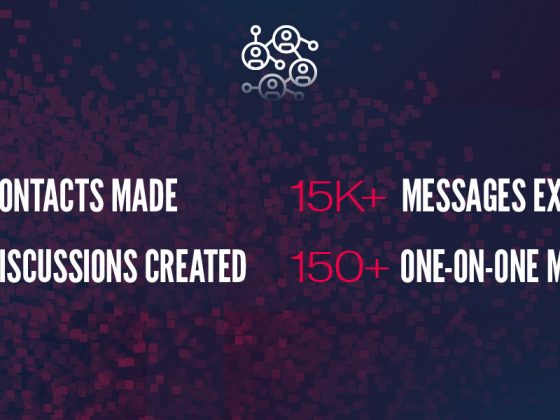Ismael Fernández is the co-founder of ThermoHuman, a pioneer company specialized in the use of Infrared Thermography to prevent injuries. We met Casado two years ago, when ThermoHuman became the second winner of the WFS StartCup by GSIC. We recently caught up with him to talk about the challenges that the sports industry will have to face in the “new normal” as a result of the COVID-19 pandemic and how technology can help overcome these challenges.
Q. First of all, tell us briefly about your company, what solutions does it provide and what partners are you currently working with with in the sports industry?
A. ThermoHuman is a pioneer company specialized in the use of Infrared Thermography to prevent injuries, to monitor them and to improve performance in humans. During the last 10 years we have been researching (8 PhD and more that 40 scientific articles published) and working with health, research and sport institutions (LaLiga, PSG, Everton FC, Houston Rockets, etc.). The results showed up to a 70% reduction of muscle injuries. The system is based on a camera that takes thermal images from subjects and a software that uses computer vision algorithms to let us know in a matter of seconds which body regions might have any potential risk of injury: fast, non-invasive and objective. Our main added value is focused in creating artificial intelligence based on machine learning and computer vision algorithms to identify automatically body regions in thermal images from humans, and also neural networks to create prediction features associated with thermal patterns and pathologies/injuries. In addition to that, we have now developed a specific application for COVID-19 based on elevated temperature face detection in real time.
Q. Why did you decide to participate in the WFS StartCup competition? What goals were you aiming to achieve?
A. We know very well the reputation of such an event and we considered that our technology fits perfectly in the approach of WFS StartCup by GSIC Our goals were to test if experts on the field and the audience might think the same, to show and explain our technology and benefits (which are unknown for almost everyone) and obviously to gain visibility and strength our brand in the sector.
Q. What impact did winning the WFS StartCup competition have on your project?
A. World Football Summit has become a reference event at a national and international level in a very short time. Having had the fortune to participate and win the StartCup has been an immense help in our great objective of publicizing the application of thermography for the prevention and monitoring of injuries in sports and health sector. It is difficult to measure the impact, but it has certainly helped us improve our positioning and brand image, and that is something very valuable in a project like ours.
Q. Technology has been playing a crucial role in sports for quite some time now, but its importance will still be increasing in the upcoming years. In which areas would you say we can expect more impact in the coming years?
A. No doubt we are going to undergo a long process to what we knew as “normality”. In our opinion, technology is going to play a crucial role in making everything seem as “normal” as possible: fan engagement, stadiums, television, sharing experiences, health control, etc.
Q. COVID-19 is going to present new and unprecedented challenges for the sports industry once competitions resume. How do you think technology can help overcome these challenges? What new developments do you eye?
A. As I mentioned before, technology is going the help us feel we are closer to what we know as “normality”. Reducing the COVID-19 risk and making the football experience as much real as possible are the main challenges. From our side, we can help mitigating the risk of infection using our technology in sport venues and stadiums by screening fans and players to detect body elevated temperature.



